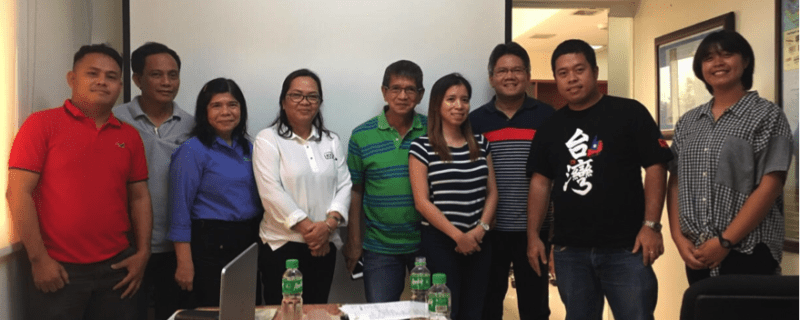Filipino Customers Learn How U.S. Soybean Meal Improves Animal Performance and Reduces Cost
- Category:
- Animal Utilization
- General News

USSEC recently conducted roundtable discussions and in-house meetings with the largest preferred customers of U.S. soybean meal in the Philippines’ Visayas region.
USSEC - Philippines team members and Marietta Ramos of Instapro International (Instapro), traveled to Tagbilaran, Bohol and Cebu City from March 6-9. These activities aim to promote the production and use of U.S. full fat soybean meal (FFSBM).
In Tagbilaran, Dr. Neneth Reas, Dr. Benito Oliveros, and Ms. Ramos met with the vice president and general manager of Alturas, Mar Uy on March 6. Bohol’s biggest farm and feedmill, Marcela Farms, is under Alturas. The farm has 4,000 sow levels, 300,000 layers, and currently produces 1.1 million broilers a month, which consume at least 35,000 metric tons (MT) of U.S. soybean meal per year. Marcela Farms imports its soybean meal directly from the U.S., co-loading with General Milling Corp (GMC).
The team also held an in-house seminar on the production and utilization of FFSBM for the Marcela Farms’ technical group, headed by its operations manager, Johanna Uy.
Marcela Farms is currently using coconut oil and corn in all its feed formulas, but is working on partially replacing the coconut oil and corn with FFSBM due to the high prices of the two former energy-source, raw materials.
As a testament to USSEC Philippines’ trip success, Mr. Uy contacted the supplier of FFSBM from Cagayan De Oro (CDO) after the meeting to request a quote. He also requested Instapro to submit a quote for 2 units of 2,000 MT/hour capacity extruder machines.

On March 8, the team visited the Cebu feedmill and feed laboratory of Oversea Corporation, where they met with its chief of quality control (QC), Aileen Itang.
Ms. Itang raised a major concern on the quality of FFSBM that they produce, which is often overcooked. Oversea produces FFSBM using only U.S. soybean #2, but still uses an extruder machine designed for floating fishfeeds. It was deduced that the length of extrusion time and the temperature level in the machine used by Oversea are the main reasons why their FFSBM is of poor quality despite, using U.S. soybeans in their production.
A roundtable meeting was held separately with Alice Sincuengco, nutritionist of Neovia Feedmill, formerly called Popular Feedmill. Neovia also has another feedmill plant in San Ildefonso, Bulacan. Both Neovia Feedmills produce commercial feeds for swine and poultry.
The Team also briefly met with Dr. Abel De Manuel, who operates the Universal Feeds Corporation, the biggest commercial feedmill in Cebu, after San Miguel Purefoods Incorporated. During the meeting, Dr. Manuel expressed interest in putting up his own extruder plant to produce FFSBM. Universal Feeds is now co-loading with GMC in importing U.S. soybean meal.
Finally, an in-house seminar was conducted for the technical and production staff of GMC, led by its chief of technical services, Ernestina Elizalde and nutrition consultant, Lito Naldo.
GMC imports U.S. dehulled soybean meal (DHSBM) for commercial trading and also has its own feedmill which produces commercial feeds. Marcela Farms and Universal Feeds co-load with GMC in the importation of U.S. soybean meal.

Calculating the possible use of FFSBM by Marcela Farms at a minimum of 15,000 MT of soybeans per year, plus GMC and Universal Feed’s 10,000 MT, an importation increase of 25,000 MT of U.S. soybeans is projected. This is a welcome addition to the rapidly increasing U.S. soybean import by the Philippines.